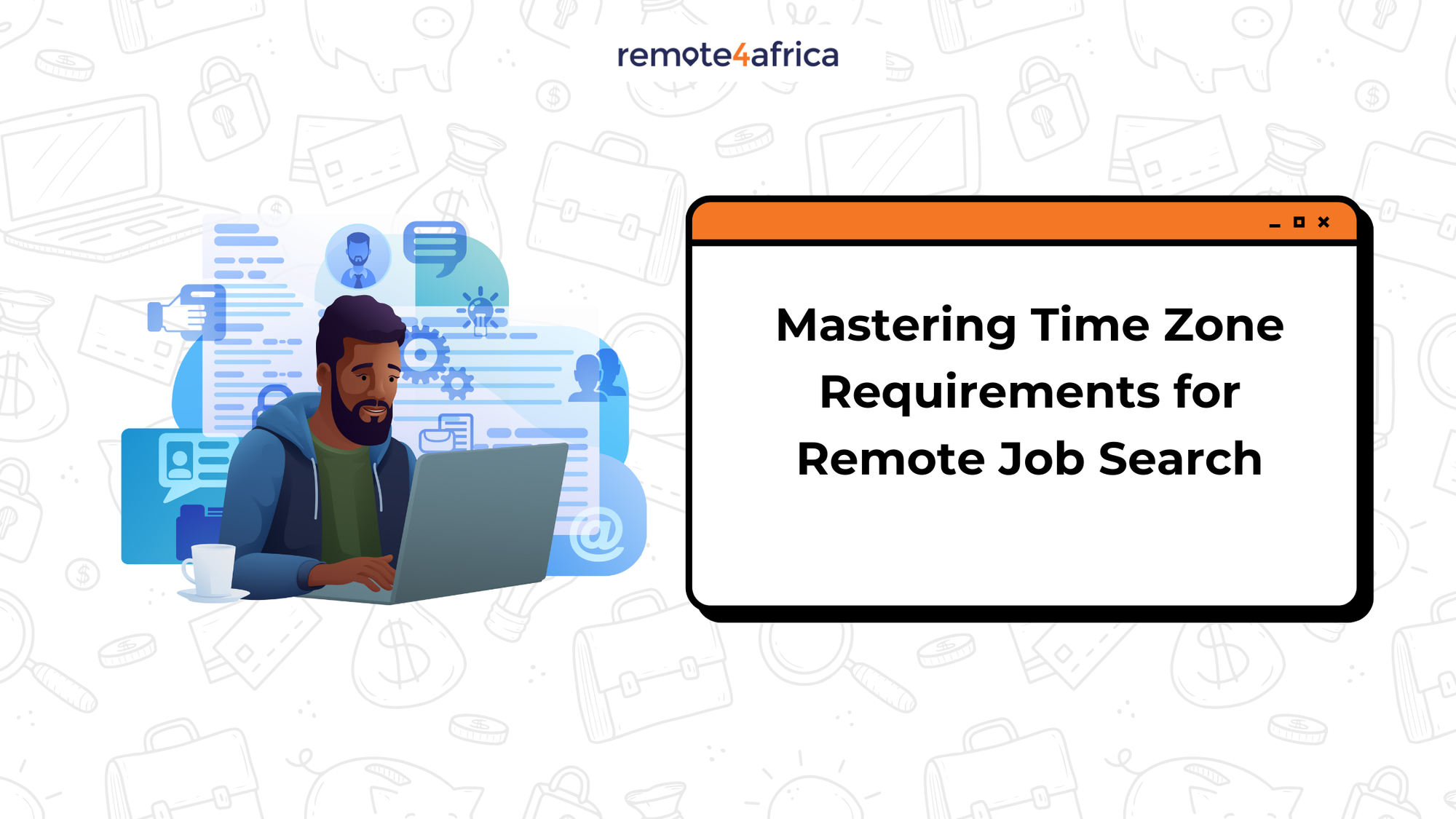Mastering Time Zone Requirements to Succeed in Remote Job Search
In this article, we’ll break down why time zones matter, the common requirements employers list, and how you can position yourself strategically to take advantage of your local time zone.

As someone searching for remote jobs it is important to note that one factor that often determines whether you land a remote role is time zone requirements. Employers want to ensure smooth collaboration, efficient communication, and real-time availability.
For job seekers, understanding how to work with, and even exploit these requirements can make the difference between missing out and securing that dream role.
Why Time Zones Matter in Remote Work
Remote jobs allow teams spread across continents to work together. But without some overlap in working hours, collaboration can suffer. Employers usually set time zone requirements to ensure team members can:
- Attend daily stand-ups or project meetings.
- Collaborate in real time with managers or clients.
- Avoid delays that come from working on completely different schedules.
For example, a U.S. company hiring a software developer may prefer candidates who can overlap at least 4 hours with Eastern Standard Time (EST), even if the developer is based in Lagos or Nairobi.
Common Time Zone Requirements by Employers
Not all remote companies operate the same way. Some remote employers require candidates within their timezones while others may be a bit more flexible. Here are some of the most frequent requirements:
- U.S.-based companies: Often require availability in EST or PST. Some ask for 3–6 hours overlap for meetings.
- European companies: Tend to align with GMT or Central European Time (CET), which works well for African professionals in WAT (GMT+1).
- African companies: Usually prefer WAT (West Africa Time) or EAT (East Africa Time). These are great options for those seeking regionally remote jobs.
- Fully global companies: Some remote companies allow total flexibility with minimal time zone restrictions.
How to Identify Time Zone Requirements in Job Listings
Time zone expectations are usually hidden in plain sight within job descriptions. Look for keywords such as:
- “Must overlap 4 hours with EST.”
- “Working hours aligned with GMT.”
- “Flexibility to attend meetings in PST.”
To avoid confusion, use tools like World Time Buddy or simply Google “EST to [Your City] time” to calculate overlaps quickly. Being proactive shows employers that you understand and respect their requirements.
Strategies to Leverage Time Zone Advantages
Your time zone can be a hidden strength if you know how to sell it. Here’s how:
- Align with employer needs: If a European company needs GMT+1 workers, Nigerians, Ghanaians etc (WAT = GMT+1) are a perfect match. Highlight this in your cover letter.
- Show flexibility: Employers value candidates who can adjust schedules for important meetings. A willingness to occasionally work late or early could set you apart.
- Market your region: For U.S. companies, Africa’s time zone can be a plus. You can often cover their late evenings while still working your daytime hours.
Practical Tips for Managing Time Zone Differences
Working across time zones requires discipline. Here’s how to stay effective:
- Plan overlapping hours: Structure your day so the most important collaboration happens when your teammates are online.
- Use scheduling tools: Tools like Google Calendar, Calendly, or Slack’s timezone feature make coordination seamless.
- Protect work-life balance: Remote workers often risk burnout by working odd hours. Set boundaries and use breaks wisely.
How to Market Your Time Zone Strength in Job Applications
When applying for remote roles, don’t leave employers guessing. Instead:
- Clearly state your availability in their time zone (e.g., “Available 9 AM – 5 PM WAT, overlapping 5 hours daily with EST”).
- Mention examples of past projects where you managed time zone differences successfully.
- Reassure employers of your flexibility for occasional meetings outside regular hours.
By being upfront, you turn a potential hiring concern into a confidence booster.
Time zone requirements for remote jobs are not barriers, they’re opportunities. By understanding employer needs, highlighting your availability, and adapting your routine, you can position yourself as the perfect candidate. For Nigerians and other African professionals, this is especially important, as our time zones often overlap well with Europe and partially with the U.S.
In your next remote job application, don’t just focus on skills and experience, also show that you can work smart across time zones. It could be the key to landing your next big role.
